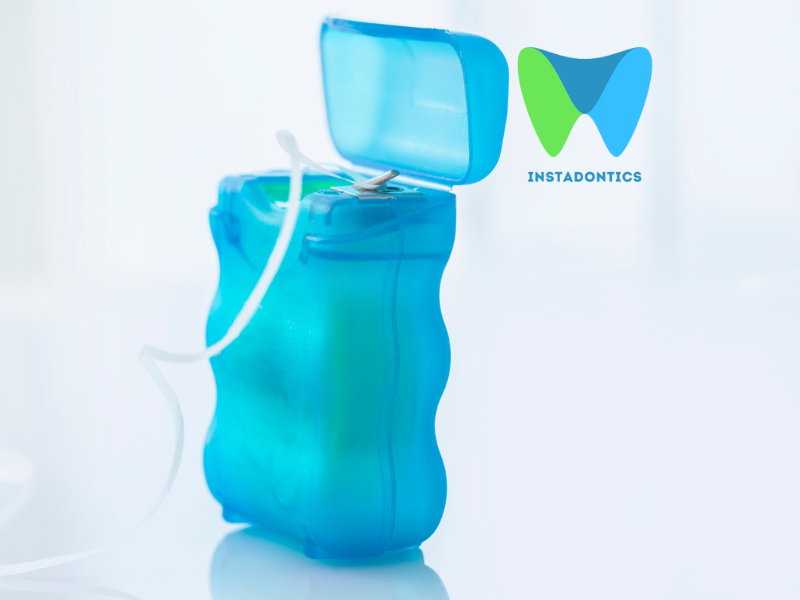Gum disease, also known as periodontal disease, is a serious condition that affects the gums and the structures supporting the teeth. It can lead to tooth loss and has been linked to other health issues, including heart disease and diabetes. One of the most effective ways to combat gum disease is through proper oral hygiene, which includes regular brushing, flossing, and the use of mouthwash. In this guide, we will explore the best mouthwash options for gum disease, their ingredients, benefits, and how to choose the right one for your needs.
Gum Disease
Before diving into mouthwash options, it’s essential to understand what gum disease is and how it develops. Gum disease typically begins with gingivitis, characterized by inflammation, redness, and bleeding of the gums. If left untreated, it can progress to more severe forms, such as periodontitis, which can cause irreversible damage to the bone and tissue supporting the teeth.
Causes of Gum Disease
Gum disease is primarily caused by the accumulation of plaque, a sticky film of bacteria that forms on the teeth. Factors that contribute to the development of gum disease include:
- Poor oral hygiene
- Smoking or tobacco use
- Hormonal changes (e.g., pregnancy, menopause)
- Certain medical conditions (e.g., diabetes, autoimmune diseases)
- Medications that reduce saliva flow
- Genetic predisposition
Symptoms of Gum Disease
Common symptoms of gum disease include:
- Red, swollen gums
- Bleeding while brushing or flossing
- Persistent bad breath
- Receding gums
- Loose teeth
- Changes in bite or tooth alignment
If you experience any of these symptoms, it’s crucial to consult with a dental professional for an accurate diagnosis and appropriate treatment.
The Role of Mouthwash in Gum Disease Treatment
Mouthwash can be a valuable addition to your oral hygiene routine, especially for those at risk of or currently experiencing gum disease. While mouthwash is not a substitute for brushing and flossing, it can help reduce plaque buildup, kill bacteria, and freshen breath. Here are some benefits of using mouthwash for gum disease:
- Reduces Plaque and Tartar: Antimicrobial mouthwashes can help reduce plaque formation, preventing the progression of gum disease.
- Fights Bacteria: Many mouthwashes contain active ingredients that kill harmful bacteria responsible for gum disease.
- Soothes Inflammation: Certain mouthwashes can help soothe inflamed gums, providing relief from discomfort.
- Freshens Breath: Mouthwash can help eliminate bad breath, which is often a symptom of gum disease.
- Reaches Difficult Areas: Mouthwash can reach areas that may be difficult to clean with a toothbrush or floss, providing additional protection.
Key Ingredients to Look for in Mouthwash for Gum Disease
When selecting a mouthwash for gum disease, it’s essential to look for specific active ingredients known for their effectiveness in combating gum disease. Here are some key ingredients to consider:
1. Chlorhexidine
Chlorhexidine is a powerful antiseptic that is often prescribed by dentists for the treatment of gum disease. It helps reduce plaque formation and bacterial growth, making it effective in managing gingivitis and periodontitis. Chlorhexidine mouthwash is typically used for a short duration due to potential side effects, such as staining of the teeth and altered taste.
2. Cetylpyridinium Chloride (CPC)
CPC is another antiseptic ingredient found in many over-the-counter mouthwashes. It helps reduce plaque and gingivitis by killing bacteria in the mouth. CPC-containing mouthwashes are often alcohol-free, making them a gentler option for those with sensitive mouths.
3. Essential Oils
Mouthwashes containing essential oils, such as eucalyptol, menthol, and thymol, can help reduce plaque and gingivitis. These natural ingredients have antimicrobial properties and can provide a refreshing taste without the harshness of alcohol.
4. Fluoride
Fluoride is a mineral that helps strengthen tooth enamel and prevent cavities. While fluoride is not specifically targeted at gum disease, using a mouthwash with fluoride can support overall oral health and complement your gum disease treatment.
5. Aloe Vera
Aloe vera has natural anti-inflammatory and antibacterial properties, making it a beneficial ingredient for soothing inflamed gums. Mouthwashes with aloe vera can help promote healing and provide relief from gum discomfort.
Top Mouthwash Recommendations for Gum Disease
Now that we understand the importance of mouthwash in managing gum disease and the key ingredients to look for, let’s explore some of the best mouthwash options available on the market.
1. Chlorhexidine Gluconate Mouthwash (Rx)
Brand Example: Peridex, PerioGard
Chlorhexidine gluconate mouthwash is a prescription mouthwash that is often recommended by dentists for patients with gum disease. It effectively kills bacteria and reduces plaque buildup. Typically used twice daily, it is essential to follow your dentist’s instructions when using this mouthwash.
Pros:
- Highly effective against plaque and bacteria
- Reduces gum inflammation
Cons:
- May cause temporary staining of teeth
- Can alter taste perception
2. Listerine Antiseptic Mouthwash
Active Ingredients: Eucalyptol, menthol, thymol, and methyl salicylate
Listerine is a well-known mouthwash brand that contains essential oils with antibacterial properties. It helps reduce plaque and gingivitis while providing a refreshing taste. Listerine is available in various formulations, including alcohol-free options for those with sensitive mouths.
Pros:
- Effective against plaque and bad breath
- Available in various flavors
Cons:
- Contains alcohol, which may cause dryness in some users
3. Crest Pro-Health Multi-Protection Mouthwash
Active Ingredients: Cetylpyridinium chloride (CPC)
Crest Pro-Health mouthwash is designed to fight plaque, gingivitis, and bad breath. It contains CPC, an effective antimicrobial agent that helps reduce bacteria in the mouth. This mouthwash is alcohol-free, making it gentler on the mouth.
Pros:
- Alcohol-free formulation
- Provides long-lasting freshness
Cons:
- May take longer to show results compared to chlorhexidine
4. TheraBreath Fresh Breath Oral Rinse
Active Ingredients: Aloe vera, cetylpyridinium chloride (CPC)
TheraBreath is known for its focus on combating bad breath, but it also helps reduce plaque and gum inflammation. With natural ingredients like aloe vera, this mouthwash is gentle and effective for those with sensitive gums.
Pros:
- Alcohol-free and gentle on the mouth
- Contains natural ingredients
Cons:
- May not be as effective for advanced gum disease
5. Colgate Total Advanced Pro-Shield Mouthwash
Active Ingredients: Cetylpyridinium chloride (CPC)
Colgate Total Advanced Pro-Shield mouthwash provides 12-hour protection against plaque and gingivitis. It contains CPC and is designed to be effective in killing bacteria that cause gum disease while also providing long-lasting fresh breath. The mouthwash is alcohol-free, making it suitable for those who may experience dryness or sensitivity.
Pros:
- Provides 12-hour protection against plaque and gingivitis.
- Alcohol-free formulation is gentle on gums.
- Freshens breath effectively.
Cons:
- Some users may find the taste less appealing compared to other brands.
6. ACT Anticavity Fluoride Rinse
Active Ingredients: Sodium fluoride, cetylpyridinium chloride (CPC)
ACT Anticavity Fluoride Rinse is primarily designed to prevent cavities but also helps strengthen enamel and reduce plaque buildup. The addition of CPC makes it effective against harmful bacteria that contribute to gum disease. This mouthwash is also alcohol-free, making it a gentle option for daily use.
Pros:
- Strengthens tooth enamel while combating plaque.
- Alcohol-free and suitable for sensitive mouths.
- Available in various flavors.
Cons:
- Primarily focused on cavity prevention, so it may not be as targeted for gum disease as other options.
7. Biotene Oral Rinse
Active Ingredients: Aloe vera, glycerin, and other moisturizing agents
Biotene is specifically formulated for individuals with dry mouth, often a side effect of medications or certain health conditions. While it’s not primarily marketed for gum disease, it helps maintain moisture in the mouth, which can be beneficial for gum health. The moisturizing properties can soothe irritated gums and promote healing.
Pros:
- Excellent for individuals with dry mouth.
- Soothes and hydrates gums.
- Alcohol-free and gentle on the mouth.
Cons:
- Not specifically targeted at gum disease, so it may be more of a supportive treatment.
How to Use Mouthwash Effectively for Gum Disease
To maximize the benefits of mouthwash in your oral hygiene routine, it’s essential to use it correctly. Here are some tips on how to effectively incorporate mouthwash into your daily routine:
1. Choose the Right Mouthwash
Select a mouthwash that contains effective ingredients for gum disease, such as chlorhexidine, CPC, or essential oils. Consider your specific needs, such as sensitivity or dryness, when making your choice.
2. Follow the Instructions
Read the label carefully and follow the instructions for use. Most mouthwashes recommend swishing for about 30 seconds to one minute. For prescription mouthwashes, adhere to your dentist’s guidelines regarding frequency and duration.
3. Do Not Rinse with Water Immediately
After using mouthwash, avoid rinsing your mouth with water for at least 30 minutes. This allows the active ingredients to remain on your teeth and gums for maximum effectiveness.
4. Use Mouthwash at the Right Time
Incorporate mouthwash into your oral hygiene routine after brushing and flossing. This ensures that any remaining bacteria or plaque are addressed and helps freshen breath.
5. Be Consistent
Consistency is key for effective gum disease management. Use mouthwash regularly as part of your daily oral hygiene routine to help maintain gum health.
6. Consult Your Dentist
If you have gum disease or are at risk, consult your dentist for personalized recommendations on mouthwash and other treatments. Regular dental check-ups are essential for monitoring your oral health and making necessary adjustments to your care routine.
Additional Tips for Managing Gum Disease
While mouthwash can be a valuable tool in managing gum disease, it should be part of a comprehensive oral hygiene routine. Here are some additional tips to help you maintain healthy gums:
1. Brush Twice Daily
Brush your teeth at least twice a day using a soft-bristled toothbrush and fluoride toothpaste. Be sure to brush for at least two minutes, paying special attention to the gumline.
2. Floss Daily
Flossing is crucial for removing plaque and food particles between teeth and along the gumline. Make it a habit to floss at least once a day to keep your gums healthy.
3. Maintain a Healthy Diet
A balanced diet rich in vitamins and minerals can support gum health. Foods high in vitamin C, such as citrus fruits and leafy greens, can help strengthen gums and reduce inflammation.
4. Stay Hydrated
Drinking plenty of water helps keep your mouth moist and aids in washing away food particles and bacteria. Staying hydrated is especially important for individuals with dry mouth.
5. Avoid Tobacco Products
Tobacco use is a significant risk factor for gum disease. If you smoke or use tobacco products, seek support to quit, as this can greatly improve your oral health.
6. Limit Sugary Foods and Drinks
Reduce your intake of sugary foods and beverages, as they can contribute to plaque buildup and gum disease. Opt for healthier snacks and drinks whenever possible.
7. Regular Dental Visits
Schedule regular dental check-ups and cleanings to monitor your gum health. Your dentist can identify early signs of gum disease and provide professional cleanings to remove plaque and tartar buildup.
Related: Side Effects of Mouthwashes | What You Need to Know
Gum disease is a serious condition that requires proactive management to prevent further complications. Using the right mouthwash can significantly enhance your oral hygiene routine and help combat gum disease effectively. Look for mouthwashes containing key ingredients such as chlorhexidine, cetylpyridinium chloride, or essential oils, and incorporate them into your daily routine alongside brushing and flossing.
Remember that mouthwash is not a substitute for good oral hygiene practices but rather a complementary tool. By maintaining a comprehensive oral care routine, including regular dental visits, you can keep your gums healthy and reduce the risk of gum disease. If you have any concerns about your gum health or the best mouthwash for your needs, consult your dentist for personalized recommendations and guidance. With the right approach, you can achieve and maintain a healthy smile for years to come.



